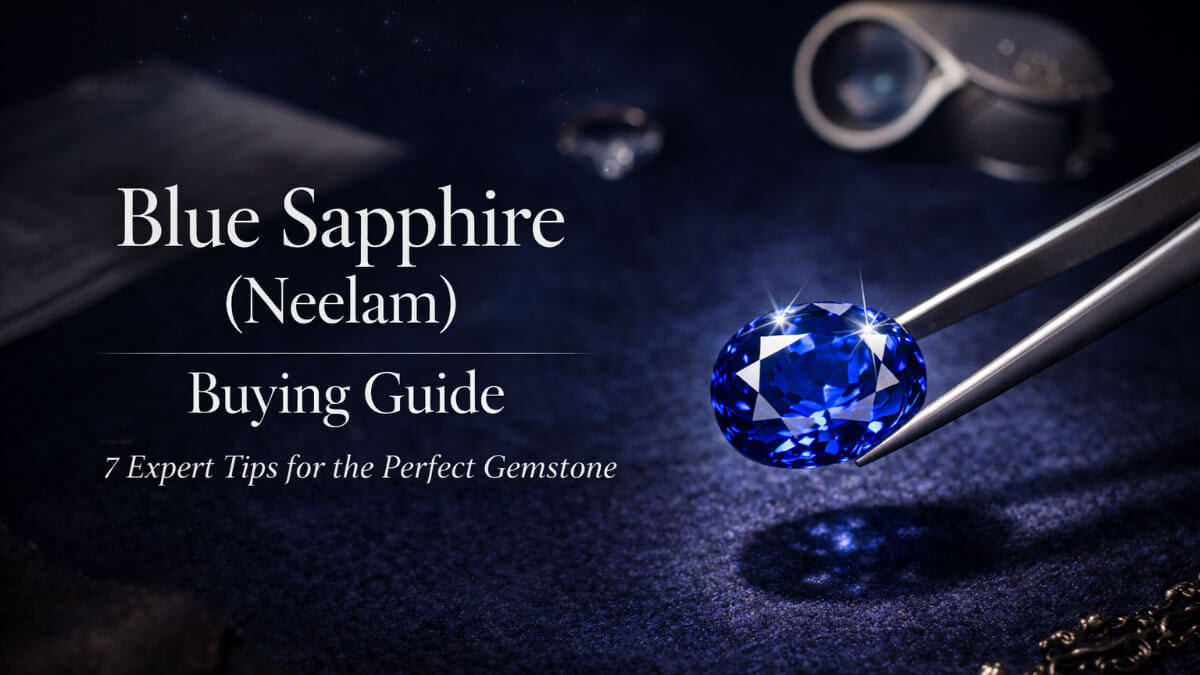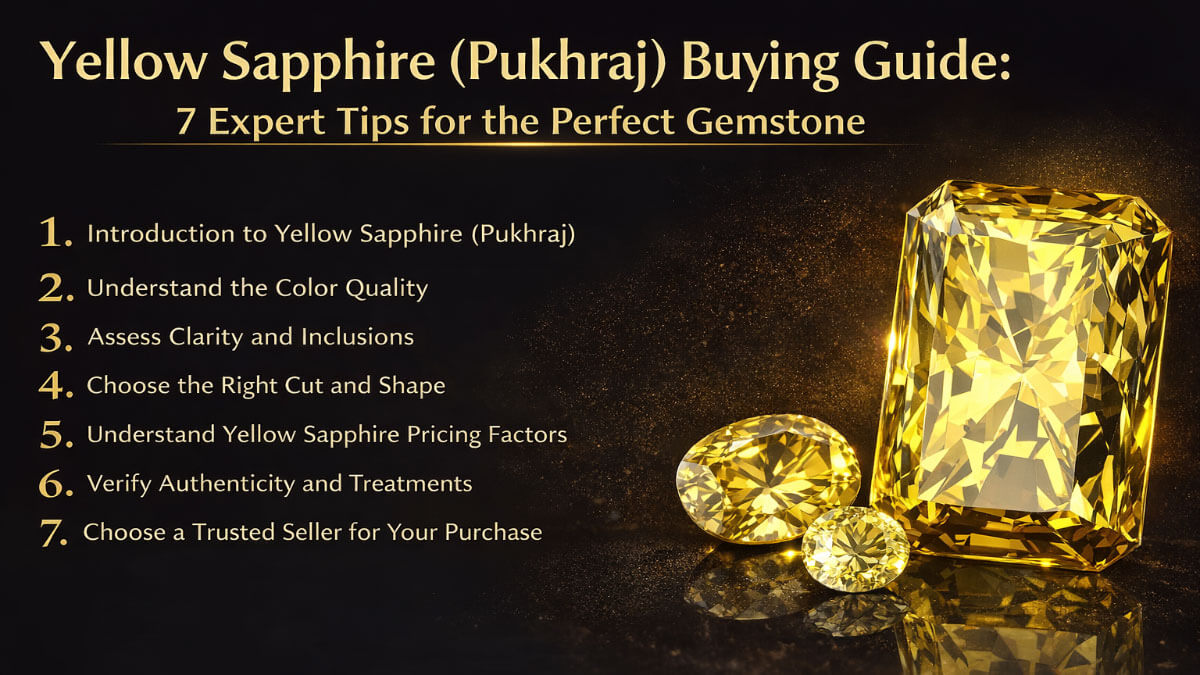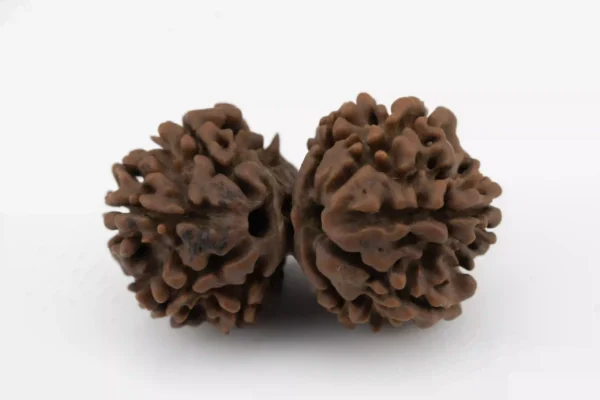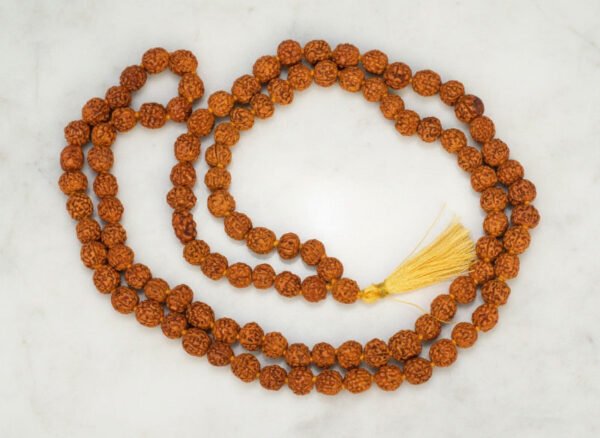Buy Original Firoza Stone: Irani Turquoise Price & Benefits India (2026)
Looking for an authentic Firoza stone? Turquoise — with its mesmerizing sky-blue color — is one of the oldest known gemstones, treasured across cultures for protection and wisdom. But here’s the challenge: over 90% of turquoise in the market is treated, and many “Firoza” stones are actually dyed Howlite fakes. This guide covers everything about Turquoise: current prices in India (including premium Irani Turquoise), how to identify original stones from imitations, treatment types you should know about, and what Vedic astrology says about its Jupiter connection. Whether you want Firoza for astrological purposes or its stunning beauty, you’ll learn to buy with confidence.


Firoza Quick Facts
| Chemical Composition | Hydrated Copper Aluminum Phosphate |
| Chemical Formula | CuAl₆(PO₄)₄(OH)₈·4H₂O |
| Hardness | 5 – 6 on Mohs Scale (soft, porous) |
| Specific Gravity | 2.60 – 2.90 |
| Hindi/Urdu Name | Firoza (फ़िरोज़ा) |
| Astrological Planet | Jupiter (Guru) — also associated with Ketu |
| Best Origins | Iran (Persian), USA (Sleeping Beauty), Tibet |
| Price Range (India) | ₹300 – ₹5,000+ per carat |
What is Firoza Stone (Turquoise)?
Firoza (also spelled Feroza or Phiroza) is the Persian/Urdu name for Turquoise — one of humanity’s oldest gemstones, used for over 5,000 years. The name “Turquoise” comes from French pierre turquoise, meaning “Turkish stone,” as it reached Europe via Turkey from Persian mines.
Turquoise is a hydrated copper-aluminum phosphate, and its famous blue color comes from copper content. The more copper, the bluer the stone; iron content adds green tones. Unlike most gemstones, Turquoise is opaque and often features “matrix” — veins of the host rock running through it.
Types of Turquoise by Origin
Origin Comparison
| Origin | Color | Matrix | Value |
|---|---|---|---|
| Persian/Irani | Intense “robin’s egg” blue | Often clear (no matrix) or fine spiderweb | Highest — premium quality |
| American (Sleeping Beauty) | Pure sky blue | Usually clear, no matrix | Very High |
| American (Various Mines) | Blue to blue-green | Distinctive matrix patterns | High (collector value) |
| Tibetan | Blue-green to green | Bold spiderweb matrix | Moderate-High |
| Chinese | Variable, often greenish | Variable | Moderate |
Why Irani Turquoise is Premium: Persian (Iranian) Turquoise from the Nishapur mines has been the world standard for finest quality for centuries. Its intense, pure blue color without matrix is extremely rare. Most “Irani Firoza” in the Indian market is actually lower-grade material or mislabeled — always demand lab certification with origin.
Firoza Stone Price in India (2026)
Understanding Firoza stone price and especially Irani Turquoise price helps you buy wisely:
Price by Quality & Origin
| Quality/Origin | Price (₹/carat) | Characteristics |
|---|---|---|
| Commercial (Chinese/Stabilized) | ₹300 – ₹600 | Greenish-blue, visible matrix, stabilized |
| Good (Tibetan/Stabilized) | ₹600 – ₹1,200 | Good blue, attractive matrix, stabilized |
| Fine (American/Stabilized) | ₹1,200 – ₹2,500 | Sky blue, clear or fine matrix |
| Premium Irani (Stabilized) | ₹2,500 – ₹5,000 | Intense robin’s egg blue, minimal matrix |
| Gem-Grade Irani (Natural/Untreated) | ₹5,000 – ₹15,000+ | Untreated, pure blue, no matrix — extremely rare |
Turquoise Product Prices
| Product | Size/Specs | Price Range (₹) |
|---|---|---|
| Loose Firoza Stone | 5-10 carat | ₹1,500 – ₹25,000 |
| Firoza Ring (Silver) | 5-8 carat stone | ₹3,000 – ₹15,000 |
| Firoza Pendant | 8-12 carat | ₹2,500 – ₹12,000 |
| Turquoise Bracelet | 8mm beads | ₹800 – ₹4,000 |
| Turquoise Mala (108 beads) | 6-8mm beads | ₹1,500 – ₹8,000 |
Prices as of January 2026. Actual prices vary based on origin, color, matrix, and treatment.
What Affects Firoza Price?
- Origin: Irani (Persian) commands highest prices, followed by American (Sleeping Beauty)
- Color: Pure, intense sky-blue (“robin’s egg”) is most valuable; greenish tones reduce value
- Matrix: Clear (no matrix) is rarest and most valuable; fine spiderweb adds value; heavy matrix reduces value
- Treatment: Untreated natural turquoise is extremely rare and expensive; stabilized is industry standard
- Size: Larger stones of good quality are progressively rarer
Understanding Turquoise Treatments
This is critical to understand: over 90% of turquoise in the market is treated. Here’s what you need to know:
Treatment Types
| Treatment | Description | Acceptability | Price Impact |
|---|---|---|---|
| Natural (Untreated) | No treatment — extremely rare gem-quality | Ideal, very rare | Premium (3-5x stabilized) |
| Stabilized | Infused with clear resin for durability | Industry standard, accepted | Standard pricing |
| Enhanced/Dyed | Color enhanced with dye | Should be disclosed | Lower value |
| Reconstituted | Turquoise dust bonded with resin | Lowest quality | Very low value |
Key Point: Stabilization is a permanent, accepted treatment that makes porous turquoise durable for jewelry. It doesn’t affect astrological properties according to practitioners. Untreated gem-quality turquoise is extremely rare and expensive. What you should avoid: dyed or reconstituted turquoise, which are inferior products.
How to Identify Original Firoza Stone
Turquoise has many imitations, the most common being dyed Howlite and dyed Magnesite. Here’s how to spot fakes:
Important Disclaimer: The following self-tests are for preliminary analysis only. They help identify obvious fakes but cannot determine origin, treatment type, or guarantee authenticity. For definitive identification, always obtain a lab certificate from a recognized gemological laboratory.
Test 1: Acetone/Nail Polish Remover Test (For Dyed Stones)
This test detects dyed imitations.
How to test:
- Dip a cotton swab in acetone (nail polish remover)
- Rub gently on an inconspicuous area of the stone
- Observe the cotton swab
Preliminary results:
- Natural/Stabilized Turquoise: No color transfer to cotton
- Dyed Howlite/Magnesite: Blue color transfers to cotton swab
Caution: This test may damage the surface of some stones. Test only on inconspicuous areas, or better yet, rely on lab certification.
Test 2: Matrix Pattern Check
Examine the matrix (vein patterns) carefully:
- Natural Turquoise: Matrix patterns are random, organic, and irregular
- Dyed Howlite: Matrix often appears too uniform, repetitive, or “painted on”
- Reconstituted: Matrix may look artificial, like scattered fragments
Test 3: Price Reality Check
- Real Irani Turquoise: Minimum ₹2,500/carat for good quality
- If someone offers “Irani Firoza” for ₹200-500/carat: It’s almost certainly Chinese turquoise, Howlite, or reconstituted material
Test 4: Weight/Density Test
Turquoise (SG 2.60-2.90) is heavier than Howlite (SG 2.45-2.58).
Preliminary results:
- Real Turquoise feels denser for its size
- Howlite/Magnesite feel slightly lighter
Note: This difference is subtle and not reliable for untrained hands.
Test 5: Lab Certification (100% Reliable)
For genuine Irani Turquoise or any valuable turquoise purchase, lab testing is essential. Labs will confirm:
- Material: Natural Turquoise vs. imitation
- Treatment: Natural, stabilized, or dyed
- Origin: If determinable (Persian, American, etc.)
Remember: Self-tests catch obvious fakes (dyed Howlite). But for origin verification (especially “Irani” claims) and treatment disclosure, lab certification is the only reliable method.
Firoza in Vedic Astrology
According to Vedic astrology traditions, Firoza is associated with Jupiter (Guru) and also worn to pacify Ketu. It’s considered a powerful protective and wisdom-enhancing stone.
Who May Consider Wearing Firoza?
As per traditional Jyotish recommendations:
- Sagittarius (Dhanu) and Pisces (Meena) ascendants — Jupiter is the ruling planet
- Those seeking wisdom, success, and good fortune
- Individuals wanting protection from negative energies
- People in creative, communication, or travel-related professions
- Those wanting to pacify malefic Ketu effects
Traditional Benefits Associated with Firoza
According to astrological practitioners, wearing Firoza may support:
- Protection from accidents and negative energies
- Enhanced wisdom and decision-making
- Success in communication and negotiation
- Good fortune in travel
- Physical healing, particularly respiratory health
- Emotional balance and stress relief
Traditional Wearing Guidelines
| Recommended Weight | 5-7 carats minimum |
| Finger | Index finger or ring finger (right hand) |
| Metal | Silver (preferred) or Gold |
| Day to Wear | Thursday or Friday morning, Shukla Paksha |
| Mantra | “Om Gram Grim Graum Sah Gurave Namah” (ॐ ग्रां ग्रीं ग्रौं सः गुरवे नमः) — 108 times |
| Cleansing | Gangajal or raw cow’s milk before wearing |
Note: Astrological recommendations vary based on individual birth charts. Please consult a qualified Jyotish practitioner before wearing any gemstone for astrological purposes.
How to Evaluate Turquoise Quality
Turquoise is evaluated differently from transparent gemstones:
1. Color (50% of value)
- Best: Intense, pure “robin’s egg” or sky blue
- Good: Medium blue with slight green tint
- Average: Blue-green or green-blue
- Lower: Pale blue, heavily greenish, or grayish
2. Matrix (25% of value)
- Best: Clear (no matrix) — rarest
- High: Fine spiderweb matrix — adds character
- Average: Moderate matrix patterns
- Lower: Heavy, unattractive matrix dominating the stone
3. Treatment (15% of value)
- Best: Natural (untreated) — extremely rare
- Standard: Stabilized — industry norm, acceptable
- Lower: Enhanced/dyed
- Avoid: Reconstituted
4. Origin (10% of value)
- Persian (Irani) commands premium
- American (Sleeping Beauty, Bisbee) highly valued
- Tibetan has collector appeal
- Chinese is most affordable
How to Care for Firoza Jewelry
Turquoise is one of the softer and more delicate gemstones requiring special care:
Critical: Turquoise is porous and soft (hardness 5-6). It can absorb oils, chemicals, and change color over time if not cared for properly. It’s much softer than gems like Sapphire or Ruby.
- Cleaning: Soft, dry cloth ONLY — or slightly damp cloth
- NEVER use: Ultrasonic cleaners, steam cleaners, chemicals, soap, jewelry dips
- Avoid contact with: Oils, lotions, perfumes, cosmetics — apply these BEFORE putting on turquoise jewelry
- Sunlight: Prolonged sun exposure can fade color
- Storage: Store separately in soft pouch — turquoise scratches easily
- Daily Wear: Better for pendants and earrings; rings require extra care
Buying Checklist: Original Firoza
Before purchasing, verify:
- ✓ Intense blue color (not pale, grayish, or overly green)
- ✓ Matrix pattern looks natural and organic (not uniform or painted)
- ✓ Acetone test doesn’t transfer color (if seller allows testing)
- ✓ Price is realistic (good Irani Turquoise starts at ₹2,500/carat)
- ✓ Lab certification confirming material, treatment, and ideally origin
- ✓ Treatment is disclosed (stabilization is acceptable)
- ✓ Return policy offered
For comprehensive gemstone evaluation guidance, see our complete gemstone buying guide.
Why Buy Firoza from Ratna Gems?
Every Turquoise from Ratna Gems comes with:
- Lab Certification: Origin and treatment verified — no dyed Howlite or mislabeled material.
- Origin Transparency: Honest disclosure of Irani, American, or Tibetan origin.
- 7-Day Returns: Shop with confidence — full refund if not satisfied.
Frequently Asked Questions
What is Firoza stone price in India?
Firoza (Turquoise) price in India ranges from ₹300-600/carat for commercial stabilized Chinese turquoise to ₹2,500-5,000/carat for premium stabilized Irani Turquoise. Untreated gem-grade Irani Firoza can cost ₹5,000-15,000+/carat. Price depends on origin (Irani is premium), color intensity, matrix, and treatment.
What is the difference between Irani and regular Turquoise?
Irani (Persian) Turquoise from Iran’s Nishapur mines is the world’s finest quality — known for intense “robin’s egg” blue color, often with no matrix. Regular turquoise from China, Tibet, or lower-grade American mines is typically greenish-blue with more matrix. Irani Turquoise commands 3-5x premium pricing.
How to identify original Firoza from fake?
Preliminary tests: Acetone test (dyed stones transfer color to cotton), matrix pattern check (natural patterns are organic, not uniform), and price reality check (real Irani Turquoise costs minimum ₹2,500/carat). However, for 100% certainty on origin and treatment, always get lab certification.
Is stabilized Turquoise okay for astrology?
According to astrological practitioners, stabilized turquoise is acceptable and doesn’t affect astrological properties. Stabilization (resin infusion) is a permanent treatment making porous turquoise durable for jewelry — over 90% of turquoise is treated this way. What to avoid is dyed or reconstituted turquoise.
Which planet is Firoza associated with?
According to Vedic astrology traditions, Firoza (Turquoise) is associated with Jupiter (Guru) — the planet of wisdom, fortune, and expansion. It’s also worn to pacify Ketu’s malefic effects. Sagittarius and Pisces ascendants may particularly benefit. Consult an astrologer for personalized guidance.
Can Turquoise be worn daily?
Turquoise is soft (hardness 5-6) and porous, requiring careful handling. It’s better suited for pendants and earrings than rings. If wearing a ring, remove during household work. Avoid contact with oils, lotions, and chemicals. Store separately and clean only with a soft dry cloth.
Why is my Turquoise changing color?
Turquoise is porous and can absorb oils, lotions, and chemicals from skin and environment, causing color change over time. Lower quality stones are more susceptible. To prevent this: avoid contact with cosmetics, store properly, and choose stabilized stones which are more resistant to color change.







